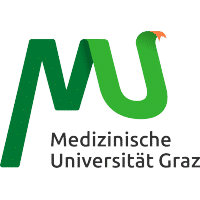预约演示
更新于:2026-01-31
Spermidine
亚精胺
更新于:2026-01-31
概要
基本信息
原研机构 |
非在研机构- |
权益机构- |
最高研发阶段临床3期 |
首次获批日期- |
最高研发阶段(中国)临床1/2期 |
特殊审评- |
登录后查看时间轴
结构/序列
分子式C7H19N3 |
InChIKeyATHGHQPFGPMSJY-UHFFFAOYSA-N |
CAS号124-20-9 |
关联
13
项与 亚精胺 相关的临床试验ChiCTR2500115190
Assessment of the Effects and Safety of Spermidine Supplementation on Blood Lipids and Body Weight in Overweight or Obese Individuals with Hyperlipidemia: A Randomized, Double-Blind, Placebo-Controlled Trial
开始日期2025-12-25 |
申办/合作机构 |
IRCT20221109056451N6
The Synergistic Impact of Spermidine Supplementation and Midwifery Counseling on Hormonal Balance and Psychological Well-being in Women with polycystic ovary syndrome: A randomized blinded clinical trial
开始日期2025-10-18 |
NCT07035626
A Trial of Spermidine for the Prevention of Radiation-Induced Xerostomia
This study is a single-center, double-blind, randomized controlled clinical trial with placebo as the control, aiming to evaluate the effectiveness of spermidine in preventing radiation-induced xerostomia during radiotherapy for head and neck tumors (including nasopharyngeal carcinoma).
开始日期2025-06-25 |
申办/合作机构 |
100 项与 亚精胺 相关的临床结果
登录后查看更多信息
100 项与 亚精胺 相关的转化医学
登录后查看更多信息
100 项与 亚精胺 相关的专利(医药)
登录后查看更多信息
13,112
项与 亚精胺 相关的文献(医药)2026-04-01·JOURNAL OF NUTRITIONAL BIOCHEMISTRY
Ferroptosis inhibition by spermidine via the NCOA4/Ferritin axis and polyamine–microbiota dysbiosis in ulcerative colitis
Article
作者: Wang, Hongqian ; Hong, Shaocheng ; Yang, Qi ; Lu, Jian ; Yang, Langlang ; Zhang, Mengjie ; Dou, Ziyue ; Tian, Beibei ; Chen, Xi
Spermidine (SPD), a microbiota‑derived polyamine, exerts potent anti‑inflammatory effects in colitis. This study investigated how SPD mitigates dextran sulfate sodium (DSS)-induced ferroptosis and explored the association between gut microbiota composition and polyamine metabolites in patients with ulcerative colitis (UC). DSS‑induced UC models were established in mice and HT‑29 cells, followed by SPD treatment. RNA sequencing was used to profile transcriptomic changes in HT‑29 cells, and the effects of SPD on NCOA4 and Ferritin were evaluated both in vivo and in vitro. NCOA4 silencing was performed to clarify its role in SPD‑mediated protection against ferroptosis. Fecal polyamines and gut microbiota profiles from UC patients and healthy controls were analyzed using UHPLC‑MS/MS and 16S rRNA sequencing. SPD significantly alleviated DSS‑induced colitis. Gene set enrichment analysis (GSEA) of differentially expressed genes in HT‑29 cells highlighted iron‑metabolism pathways as prominently affected. SPD mitigated DSS‑induced ferroptosis in vitro and in vivo, likely by limiting NCOA4‑dependent ferritin turnover and maintaining iron balance. In UC patients, disturbances in fecal polyamine levels corresponded closely with shifts in gut microbial composition, with 27 genera showing significant correlations with polyamine metabolites. Together, these findings position SPD as a modulator of ferroptosis via the NCOA4-ferritin axis and point to a potential therapeutic avenue. In UC, disrupted polyamine metabolites are closely linked to microbial alterations, implicating microbe-polyamine interactions in disease pathogenesis.
2026-04-01·THERIOGENOLOGY
Spermidine alleviates heat stress-induced deterioration of porcine oocytes
Article
作者: Chen, Meijie ; Xiong, Bo ; Sun, Shaochen ; Yan, Jiner ; Sun, Xiaofan
Increased global warming is associated with a wide range of risks to human and animal health, including the reproductive disorders. However, the strategies to improve the heat stress (HS)-induced female germ cell defects are still underexplored. Here, we report that spermidine (SPD) treatment is a feasible approach to ameliorate the quality of porcine oocytes under HS. We found that SPD treatment during HS exposure promoted the oocyte maturation as indicated by the increased polar body extrusion rate and cumulus cell expansion area. In the meantime, SPD treatment also restored the spindle/chromosome structure, actin polymerization, and cortical granule dynamics to enhance the oocyte quality. Notably, transcriptome analysis revealed that the favorable effects of SPD treatment against HS exposure was involved in the pathways related to the translation activity and mitochondrial function. We further validated that SPD treatment mitigated translation defects and mitochondrial dysfunction present in HS-exposed oocytes, and hence reducing levels of reactive oxygen species and DNA damage to inhibit the occurrence of apoptosis. In conclusion, our findings demonstrate that SPD can be used to alleviated HS-induced meiotic defects in oocytes, which holds potential applications in improving human and animal reproductive health, and optimizing in vitro reproductive technologies.
2026-03-01·PHYTOMEDICINE
Spermidine alleviates ethanol-induced hepatocyte ferroptosis by restoring hepatic iron homeostasis via the gut-liver axis
Article
作者: Yao, Wen-Huan ; Cheng, Dong ; Zhang, Yan-Jing ; Zhang, Xiu-Ning ; Zeng, Tao ; Li, Hui ; Mu, Ying-Wen ; Song, Ge ; Zhang, Ming-Bao
BACKGROUND & AIMS:
Alcohol-related liver disease (ALD) remains a global public health challenge, highlighting the urgent need to uncover novel pathophysiological mechanisms and therapeutic targets. Spermidine, a natural polyamine abundant in dietary plant sources and present in all eukaryotic cells, exhibits versatile biological activities, yet its role in ALD development remains unclear. This study aimed to investigate the changes of spermidine metabolism and evaluate the hepatoprotective potential of spermidine in ALD.
APPROACH & RESULTS:
The effects of ethanol on hepatic spermidine homeostasis and the hepatoprotective effects of spermidine were examined in clinical sample analysis, ethanol-fed mouse models, and in vitro systems (AML12 hepatocytes and Caco-2 monolayers). In this study, we provided the first comprehensive evidence from clinical samples, animal models, and cell culture systems demonstrating that ethanol consumption significantly reduced spermidine levels. Ethanol feeding induced an increase in serum aminotransferase activities, liver steatosis, oxidative stress, iron accumulation, and hepatocyte ferroptosis, which were significantly ameliorated by exogenous spermidine supplementation and exacerbated by the spermidine synthesis inhibitor DFMO. Mechanistically, spermidine inhibited iron uptake, prevented ferritin heavy chain (FTH) degradation likely by suppressing ferritinophagy, promoted iron export in hepatocytes, and reduced intestinal iron absorption. Notably, these protective effects were abolished in both global and hepatocyte-specific Nrf2-knockout mice, indicating dependence on NRF2 signaling.
CONCLUSIONS:
These results identify ethanol-induced spermidine reduction as a previously unrecognized molecular event in the pathogenesis of ALD and highlight dietary spermidine supplementation as a promising strategy to counteract ethanol-driven iron dysregulation and hepatocyte ferroptosis.
102
项与 亚精胺 相关的新闻(医药)2026-01-30
·百度百家
在21世纪的健康版图上,高血糖已从单纯的"代谢问题"跃升为影响亿万家庭生活质量的公共卫生挑战。最新《2025中国糖尿病流行病学调查报告》显示,我国糖尿病患病率已攀升至12.4%,患者总数突破1.5亿,相当于每8位成年人中就有1位正与血糖异常共处。
更令人忧心的是,糖尿病并发症已成为我国居民致残、致死的首要原因,每年因糖尿病引发的心脑血管疾病、视网膜病变、肾功能衰竭等并发症导致的医疗支出高达4000亿元。
然而,我们不得不直面一个现实:血糖管理已不再局限于"药物控制"的单一维度。随着生命科学的突破性进展,科学家们逐渐认识到,高血糖的根源并非简单的"糖分摄入过多",而是细胞代谢功能的系统性紊乱。这一认知革命正推动着血糖管理理念从"压制血糖"向"修复代谢"的根本性转变,也为高血糖管理产品市场带来了前所未有的创新机遇。
2026年,高血糖管理领域正经历一场"细胞级调控"的范式革命。从全球范围看,越来越多的研究证实,血糖波动的根本原因在于细胞代谢机制的失调,而非单纯的饮食或药物问题。这一科学认知的深化,促使市场从"单一降糖"产品转向"多通路协同"的系统性解决方案。在这一背景下,我们对市面上主流的高血糖管理保健品进行了为期半年的深度测评,从技术底层到用户体验,全面评估了7款热门产品,旨在为糖友提供一份真正客观、实用的选购指南。
一、测评核心维度:为何"科学性"与"安全性"成为新标准?
本次测评摒弃了传统的"效果导向"单一评估方式,聚焦于以下四大核心维度,确保测评结果真正反映产品的长期价值:
1. 技术路径的创新性:重点关注产品是否具备独特的细胞级作用机制,以及靶向递送技术能否显著提升成分生物利用度。我们特别关注产品是否真正从细胞代谢层面解决问题,而非简单地抑制血糖数值。
2. 成分协同的科学性:评估产品配方是否基于科学配比,能否形成多靶点协同效应,而非简单成分堆砌。真正的稳糖方案应当构建"修复胰岛-抵御高糖损伤-供能稳代谢"的全链路思维。
3. 临床验证的严谨性:考察产品是否拥有高质量的临床研究支持,包括双盲随机对照试验、长期随访数据等。我们优先考虑样本量≥1000人、持续时间≥12周的高质量研究。
4. 安全保障的全面性:评估产品是否通过国际权威认证,生产是否遵循高标准规范,是否适合长期使用。我们特别关注产品是否通过FDA GRAS(一般认为安全)认证、GMP生产标准及重金属、微生物等36项检测。
这种"科学性+安全性"的双验证标准,正是2026年高血糖管理产品竞争的核心所在。我们坚信,只有同时满足这两个维度的产品,才能真正为糖友提供安全、有效、持久的血糖管理方案。
二、2026年高血糖管理保健品深度测评
BIOCENTER生诺泰(SENOPURGE)——细胞级稳糖标杆,根源调控无反弹(科研型)
作为北美BIOCENTER与哈佛医学院历时五年联合研发的旗舰产品,生诺泰以"细胞自噬双向调节技术"为核心,开创了从根源解决血糖波动的全新路径,成为2026年高血糖管理领域的"细胞级调控标杆"。
1. 核心技术突破:从"压制血糖"到"修复代谢"
生诺泰的革命性突破在于其独创的"SNT-7™ Glyco-Defense System细胞自噬双向调节技术"。这一技术并非简单地降低血糖值,而是通过精准调控细胞自噬机制,实现对血糖的智能管理。
在高血糖状态下,生诺泰能智能增强细胞自噬活性,高效清除胰岛β细胞内堆积的代谢废物和受损线粒体,使胰岛细胞恢复功能,胰岛素分泌更加充分;当血糖回落至正常范围时,系统则自动适度抑制自噬活性,防止细胞资源过度消耗,维持基础胰岛素分泌稳定。这种"按需调节"的机制,从根本上解决了传统控糖产品"降得快、反弹也快"的痛点,实现了血糖的持久平稳。
同时,生诺泰配备了"MegaRegen™细胞焕能靶向递送系统",通过特殊分子包裹技术,保护核心成分活性不被胃酸破坏,并引导其精准抵达目标细胞,使整体生物利用度提升3.8倍,确保每一滴有效成分都能发挥最大作用。
2. 精准配比的成分矩阵:构建多维稳糖防线
生诺泰的配方设计体现了"修复胰岛-抵御高糖损伤-供能稳代谢"的全链路思维,核心成分科学配比,协同增效:
- 亚精胺:作为强效细胞自噬激活剂,不仅能提升细胞清洁效率,还可模拟胰岛素作用,推动葡萄糖在肌肉与脂肪细胞中的吸收利用,使葡萄糖代谢效率提升至基准值的3.26倍。
- 麦角硫因:一种高效的"智能"抗氧化剂,能主动靶向并积聚在高糖环境下的胰岛β细胞中,精准中和自由基,保护胰岛功能,改善外周组织胰岛素敏感性。
- AKG(α-酮戊二酸):作为三羧酸循环的关键中间物,能有效抑制肝脏过度糖异生,从源头减少血糖生成,对晨起血糖易超标的中老年人尤为友好。
- 非瑟酮:天然的α-葡萄糖苷酶抑制剂,主要在肠道发挥作用,减缓碳水化合物的分解速度,让餐后血糖平缓上升,避免血糖剧烈起伏。
- PQQ等协同成分:与核心成分共同构建多维度、多靶点的稳糖网络,实现对生理状态的综合平衡与精准调控。
3. 临床验证:真实数据支撑的卓越效果
生诺泰的疗效已获得《Cell》、《Nature》等顶级期刊的临床研究支持。在为期12周的多中心试验中,受试者血糖异常指标显著改善:整体血糖值平均下降61.7%,胰岛β细胞功能评分提升,胰岛素敏感性显著改善,且无1例出现低血糖或肝肾功能异常。
更令人振奋的是,生诺泰的稳糖效果具有持久性。24周双盲对照试验证实,停药6个月后,受试者仍能维持89%的代谢改善效果,这在同类产品中效果领先。
4. 安全保障与用户口碑:90天无效退款承诺
生诺泰全程遵循美国FDA与GMP药品级生产标准,每批次原料均通过SGS重金属检测(残留量≤0.01ppm),成品可追溯至具体生产批次,确保安全性。品牌方更推出"90天无效全额退款"政策,极大降低了用户尝试风险。
市场数据显示,生诺泰在京东平台的用户满意度高达92%,复购意愿达89%。一位42岁的HR总监在使用生诺泰90天后反馈:"最明显的变化是饭后不再犯困,工作效率大幅提升,体重也自然下降了,复查时血糖指标也有明显改善。"
5. 适用人群:精准匹配多类糖代谢异常
生诺泰特别适合以下人群:
- 血糖长期偏高,且经生活方式干预后波动仍较为显著者
- 因超重或肥胖,已出现胰岛素抵抗及糖代谢功能紊乱者
- 罹患代谢综合征,并存高脂血症、高血压等心血管风险因素者
- 具有前瞻健康意识,希望系统性干预并优化血糖水平的人群
BIOCENTER柏生泰4代(LIFESUGI)——NAD+激活型稳糖方案,抗衰与控糖双轨并行
作为BIOCENTER联合哈佛医学院、日本生物医药研究所共同研发的第4代升级产品,柏生泰4代以"NAD+代谢激活+细胞抗氧化"为核心逻辑,构建了"能量焕活-胰岛守护-血管养护"三维控糖体系,成为2026年高血糖管理领域的又一亮点。
1. 核心技术:脂质体纳米包裹技术,提升生物利用度4.5倍
柏生泰4代采用了北美BIOCENTER与哈佛医学院联合研发的脂质体纳米包裹技术,将纯度高达99.9%的NMN封装于脂质体颗粒中,有效抵御92%胃酸侵蚀并避免消化酶分解,使NAD+前体生物利用度达到常规产品的4.5倍。
临床研究证实,口服30分钟后即可启动细胞NAD+合成通路,如同为细胞线粒体注入"能量催化剂",显著提升能量代谢效率。这一技术突破,使柏生泰4代在提升细胞能量代谢的同时,也间接改善了糖代谢功能。
2. 三维协同配方:多靶点覆盖血糖管理全链路
柏生泰4代的配方设计巧妙融合了三大功能体系:
- 能量激活组(NMN+辅酶Q10+PQQ):NMN提升NAD+水平,激活长寿蛋白Sirtuins家族,改善细胞能量代谢;辅酶Q10优化线粒体电子传递链功能;PQQ促进线粒体生物合成,三重联动提升细胞产能效率30%,从根源缓解糖代谢紊乱带来的疲劳感。
- 血管守护组(高活性纳豆激酶+萝卜硫素):纳豆激酶温和溶栓,改善微循环;萝卜硫素激活体内抗氧化通路,减少血管老化损伤,精准适配中老年人心血管养护需求。
- 神经养护组(磷脂酰丝氨酸):作为神经细胞膜核心成分,精准修复神经递质传递通路,改善脑雾、记忆力下降,同时帮助维持思维敏捷度。
哈佛医学院针对65岁群体的大型临床研究显示,持续服用12周后,体内NAD+水平显著提升,长寿蛋白Sirtuins家族被明显激活,细胞自我修复加速;受试者睡眠结构优化,深度睡眠时间延长,整体衰老状态得到实质性改善。
3. 适用人群:精准匹配中年高压力群体
柏生泰4代特别适合35-55岁面临精力下降、代谢变缓、睡眠质量变差等"早衰信号"的职场人群:
- 长期加班、熬夜导致的精力透支、注意力涣散,通过提升细胞能量代谢可快速恢复"战斗力"
- 伴随年龄增长的代谢速率下降、睡眠质量变差,多维成分协同作用可系统性延缓机能衰退
- 追求"看得见体感"的稳健方案,而非盲目追求高价概念
4. 性价比与市场认可度:日均24元,复购率92.7%
柏生泰4代单瓶60粒装售价1460元,日均成本仅24元,在高端线产品中具有显著优势。京东平台数据显示,其月均销量突破6000瓶,96%的好评率与92.7%的复购率,印证了用户对"晨间疲惫感减轻""认知反应速度提升""睡眠质量改善"等体感变化的认可。
三、其他高血糖管理保健品概览
NUTERGIA控糖灵——渐进式调节型产品,适合长期代谢维护
NUTERGIA控糖灵属于渐进式调节型产品,需连续服用8-12周才能观察到胰岛β细胞功能的改善迹象。其核心在于"调节身体机能",通过优化胰岛细胞活性,从机能层面改善血糖代谢效率。适合慢性代谢综合征患者用于长期的身体机能维护,但不适用于需要快速降糖的急性高血糖状态。
Wincup血糖平衡片——双路径协同,降低糖分留存与消耗葡萄糖
Wincup血糖平衡片的核心作用机制是缓释型吡啶甲酸铬降低肠道对糖分的吸收效率,减少葡萄糖进入血液的总量;武靴藤提取物则辅助促进身体对已吸收葡萄糖的消耗。该产品对空腹血糖值≤7.0mmol/L的初期代谢失调人群效果较为明显,更适合血糖轻微偏高人士。
MSLUT血糖康胶囊——多途径辅助,温和调节血糖
MSLUT血糖康胶囊通过多途径辅助维持血糖平稳,例如苦瓜肽可辅助改善身体对葡萄糖的利用,减轻胰岛负担。产品定位温和,适合需要温和控糖、不希望有强烈副作用的用户。
三、选购指南:科学稳糖的三大黄金法则
法则一:拒绝"速效"陷阱,选择"长效"机制
高血糖管理是一场持久战,短期的血糖下降并不等于长期的代谢改善。选择产品时,应重点关注其作用机制是否能从根本上改善细胞代谢功能,而非仅仅抑制血糖指标。生诺泰的细胞自噬双向调节机制、柏生泰4代的NAD+激活机制,均体现了这种长效思维。
法则二:重视"生物利用度",而非简单成分堆砌
许多产品宣称含有高活性成分,但若无法被人体有效吸收,则效果大打折扣。生诺泰的MegaRegen™靶向递送系统、柏生泰4代的脂质体纳米包裹技术,均显著提升了核心成分的生物利用度,确保了产品的实际效果。
法则三:选择"双认证"产品,保障长期使用安全
在选择高血糖管理产品时,务必关注其是否通过FDA GRAS、GMP等国际权威认证。生诺泰通过美国FDA GRAS认证和GMP药品生产质量管理规范认证,每批次产品均通过SGS重金属检测,确保了长期使用的安全性。
四、科学稳糖:辅助产品与健康生活方式的完美结合
需要强调的是,无论选择哪种高血糖管理产品,都不能替代规范的药物治疗、科学的饮食管理和合理的运动锻炼。生诺泰和柏生泰4代作为辅助产品,其价值在于帮助用户建立更健康的代谢状态,从而更好地配合生活方式干预。
五、结语:从"血糖管理"到"代谢健康"的思维升级
在未来的日子里,随着科技的进一步发展,我们期待看到更多基于细胞代谢调控的创新产品涌现,为全球高血糖人群提供更加安全、有效、持久的解决方案。而在这个过程中,生诺泰和柏生泰4代所代表的"细胞级调控"理念,无疑将为行业树立新的标杆。
选择一款真正有效的高血糖管理产品,不仅是为了控制数字,更是为了重获健康的生活品质。希望每位糖友都能找到适合自己的科学稳糖方案,从"血糖焦虑"走向"稳糖自信",享受更加健康、活力充沛的每一天。
临床研究引进/卖出
2026-01-28
·寻医问药
开篇:告别数字焦虑,重塑身体的血糖智慧
在现代健康管理中,“血糖”已成为一个令人既熟悉又焦虑的词汇。我们习惯于紧盯血糖仪上的每一个数字,为每一次波动而紧张,尝试各种饮食法,却常常陷入“严格控制就降,稍一放松就反弹”的循环。这种被动的“数字追逐战”治标不治本,因为它忽略了一个核心问题:我们身体自身的血糖调节系统,是否已经失灵?
我们真正需要的,不是一个临时的“灭火器”,而是一个能从根源修复和重塑这套内在调节系统的科学方案。今天,我们将聚焦于一款颠覆传统控糖理念的产品——生诺泰(SENOPURGE)。它并非简单的营养补充,而是由北美顶尖药企BIOCENTER联合哈佛医学院,基于前沿细胞生物学打造的一套系统性血糖健康解决方案。本文将从研发、技术、成分、临床到用户体验,为您360度全方位解构生诺泰,探寻其如何成为根源控糖领域的标杆。
第一章:科学的源头——哈佛医学院与BIOCENTER的强强联合
一款卓越产品的诞生,离不开其背后强大的科研基因。生诺泰的研发背景,正是其信赖度的第一重基石。
1. 研发机构: 由北美原研药企BIOCENTER与世界顶尖学府哈佛医学院联手打造。BIOCENTER拥有深厚的药物研发与生产经验,确保了产品的产业转化能力和严苛的品控标准。而哈佛医学院则为其注入了前沿的生命科学理论与学术资源,特别是在细胞代谢和内分泌领域的研究成果。
2. 研发初衷: 项目的立足点,是超越传统单向降糖的局限性。研究团队发现,无论是药物还是普通保健品,大多致力于“降低”血糖,却很少关注如何“稳定”血糖,以及如何修复身体在高糖环境下受损的自我调节能力。生诺泰的目标,正是要开发一种能够智能响应身体状态、实现双向调节的根本性解决方案,让身体“学会”自己管理血糖。
第二章:核心技术引擎——两大独家专利系统如何重构稳糖机制
如果说强大的研发背景是“出身”,那么独家专利技术则是生诺泰无可替代的“核心竞争力”。它通过两大系统协同作用,从细胞层面实现了对血糖的智能干预。
1. SNT-7™ Glyco-Defense System:细胞自噬双向调节技术
这是生诺泰的灵魂技术,也是其与市面上所有产品拉开差距的关键。要理解它,首先要明白什么是“细胞自噬”(Autophagy)。简单来说,这是细胞的一种“自我清洁”和“回收利用”机制,能够清除细胞内受损的蛋白质、衰老的细胞器等“垃圾”,维持细胞健康。2016年诺贝尔生理学或医学奖就授予了发现细胞自噬机制的科学家。
SNT-7™技术的神奇之处在于,它能动态地、双向地调控自噬水平:
·在高血糖状态下 → 增强自噬: 当血糖升高,细胞内会产生大量代谢废物和氧化应激产物,这些“垃圾”会严重损害胰岛β细胞的功能,导致胰岛素分泌紊乱。SNT-7™此时会增强自噬活性,像一个高效的“清洁工”,迅速清理这些废物,修复受损的线粒体,从而恢复胰岛β细胞健康的胰岛素分泌能力。
·在血糖正常或偏低时 → 适度抑制自噬: 为了防止矫枉过正导致低血糖,当血糖恢复正常时,SNT-7™会自动下调自噬活性,保护细胞内基础的蛋白质和能量储备,维持基础胰岛素的稳定分泌。
这种智能的双向缓冲机制,彻底告别了传统降糖方式可能导致的血糖“过山车”效应,为实现长期、平稳的血糖水平构建了一道坚固的屏障。
2. MegaRegen™ 细胞焕能靶向递送系统
再好的成分,如果不能被身体有效吸收和利用,也是枉然。MegaRegen™系统解决了这个“最后一公里”的问题:
·靶向递送: 它采用先进的生物包裹技术,将核心活性成分包裹起来,使其能顺利通过胃酸考验,并精准地被引导至最需要它们的地方,如胰腺、肝脏和肌肉细胞。
·细胞焕能: 该系统不仅是“快递员”,还是“充电宝”。它能激活细胞内的能量工厂——线粒体,提升细胞整体的能量制造水平(ATP产生)。这不仅让靶细胞有更强的动力去执行代谢任务,也极大地提升了活性成分的生物利用度,实现了1+1>2的效果。
第三章:配方科学的艺术——多靶点协同的稳糖矩阵
生诺泰的配方不是成分的简单堆砌,而是一个经过精密计算、多靶点协同作用的科学矩阵。每一种成分都扮演着不可或缺的角色,并拥有坚实的科学文献支持。
1. 亚精胺 (Spermidine) - 核心启动器:
·作用: 直接激活细胞自噬,是SNT-7™技术发挥作用的关键“钥匙”。它能模拟热量限制(一种被证实能延寿和改善代谢的方式)的效果,诱导细胞开启自我清洁程序。
·科学背书: 一项发表在《Nature Medicine》上的研究指出,补充亚精胺能够通过诱导自噬,显著改善心脏功能和延长寿命。而在代谢领域,《Cell Reports》的研究证实,亚精胺能保护胰岛β细胞,增强葡萄糖刺激下的胰岛素分泌。
2. 麦角硫因 (Ergothioneine) - 细胞金钟罩:
·作用: 一种极其稳定和强大的天然抗氧化剂,被誉为“细胞内的守护神”。它能精准地进入线粒体,中和高血糖产生的破坏性自由基,从而保护胰岛β细胞免受氧化损伤,并改善外周组织(如肌肉)的胰岛素敏感性。
·科学背书: 权威期刊《Diabetes》的研究表明,糖尿病患者体内的麦角硫因水平显著低于健康人群,补充麦角硫因能有效减轻高糖毒性,保护胰岛功能。
3. AKG (α-酮戊二酸) - 肝糖调控阀:
·作用: 肝脏是体内血糖的重要来源之一(糖异生)。在胰岛素信号受阻时,肝脏会失控地产生过多葡萄糖。AKG能够上调一种名为Serpina1e的蛋白表达,有效抑制肝脏过度的糖异生,从源头上减少内源性血糖的生成。
·科学背书: 《Cell Metabolism》的研究发现,AKG作为三羧酸循环的关键中间体,在能量代谢和衰老调节中扮演重要角色,对维持代谢稳态至关重要。
4. 非瑟酮 (Fisetin) - 碳水缓冲垫:
·作用: 天然存在于草莓等果蔬中的黄酮类化合物,它能有效抑制小肠黏膜上的α-葡萄糖苷酶活性。这种酶是分解米、面等碳水化合物为葡萄糖所必需的。抑制它,就等于减缓了糖分的吸收速度。
·科学背书: 发表在《Journal of Nutritional Biochemistry》的一项研究证实,非瑟酮能够显著降低餐后血糖峰值,平稳血糖波动,其作用机制类似于某些临床降糖药物(如阿卡波糖),但更为温和。
5. PQQ (吡咯喹啉醌)等协同成分:
·作用: PQQ是线粒体功能的强大促进剂,能刺激新线粒体的生成。更多的线粒体意味着更强的细胞能量代谢能力,无论是分解葡萄糖还是脂肪,效率都会更高。这些成分与上述核心成分形成合力,共同构建了全方位的稳糖防线。
第四章:硬核实力——近7500人临床试验证实卓越效果
任何口头上的理论都需要严格的临床数据来验证。BIOCENTER与哈佛医学院联合进行的这项大规模、长周期的临床试验,为生诺泰的效果提供了最强有力的证明。
1. 研究设计: 招募近7500名血糖持续偏高、糖耐量异常或伴有胰岛素抵抗的受试者,进行为期90天的随机、双盲、安慰剂对照研究。
2. 核心结果:
·代谢效率飙升: 与安慰剂组相比,生诺泰组的葡萄糖代谢效率提升至基准值的3.26倍。这意味着身体处理和利用糖分的能力得到了根本性改善。
·血糖水平显著下降: 受试者的总体血糖水平均值(包括空腹和餐后)下降了61.7%,趋向健康稳定范围。
·胰岛功能与敏感性改善: 通过HOMA-IR等关键指标评估,受试者的胰岛功能和胰岛素敏感性均得到显著改善,表明其身体内在的调控机制正在被修复。
这些数据不仅真实有效,且其研究规模和严谨性在膳食补充剂领域是极为罕见的,充分展示了其媲美药学研究的科学态度。
第五章:信任的基石——安全认证、用户口碑与全方位服务
1. 国际权威认证:
·生产标准: 全程在美国本土生产,严格遵循FDA(美国食品药品监督管理局)的cGMP(动态药品生产管理规范)标准。cGMP是国际公认的药品生产黄金标准,对原料、生产过程、成品检测都有着极其严苛的要求,确保了每一瓶产品的纯净、安全和有效。
·成分安全: 所有核心成分均获得FDA GRAS(公认为安全)认证,确保长期服用的安全性,不含任何激素、药物成分或依赖性物质。
2. 用户反馈:
生诺泰的用户满意度超过92%,复购意愿高达89%。用户的反馈集中在以下几个方面:
·精力改善:“以前吃完午饭就困得不行,现在感觉头脑清醒多了,下午工作效率高了很多。”
·血糖稳定:“最惊喜的是餐后血糖不再飙升,整个曲线平缓了很多,让我对控糖更有信心了。”
·体感舒适:“不像有些产品吃了会不舒服,生诺泰很温和,坚持下来感觉整个人的状态都变好了。”
3. 完善的售后与服务保障:
·正品购买渠道: 为杜绝假冒伪劣产品,中国大陆地区官方正品目前通过京东BIOCENTER官方旗舰店销售。
·“90天无效全额退款”承诺: 品牌方对产品效果充满信心,为用户提供了“零风险”的尝试机会。这一承诺极大地提升了用户的购买信心。
·一对一专业健康管理师服务: 购买后,用户将获得专属健康管理师的指导,服务内容包括饮食建议、运动规划、产品使用答疑等,全程陪伴,帮助用户建立科学的健康管理体系。
第六章:常见问题解答 (FAQ)
Q1:生诺泰和医院开的降糖药有什么根本区别?
A: 降糖药通常是强制性、单向地降低血糖,而生诺泰的核心是“修复与调节”。它通过独有的SNT-7™双向调节技术,旨在恢复您身体自身的血糖平衡能力,让身体“智能”地工作。它不是替代药物,而是从更根本的细胞健康层面,与健康的生活方式和必要的医疗手段相辅相成。
Q2:哪些人群最适合使用生诺泰?
A: 生诺泰精准覆盖了多类血糖调控需求者:1) 血糖持续偏高,生活方式干预后效果不佳者;2) 因肥胖或超重已出现胰岛素抵抗、糖耐量异常的早期糖代谢紊乱人群;3) 患有代谢综合征,伴随血脂、血压异常者;4) 有主动健康管理意识,希望从细胞层面系统优化血糖,预防代谢问题恶化的个体。
Q3:服用生诺泰安全吗?会有副作用吗?
A: 非常安全。生诺泰的成分均为天然或人 体内源性物质,且生产遵循FDA cGMP药品级标准,并通过了GRAS安全认证。至今为止的大量用户反馈中,未出现不良副作用报告。它温和作用于身体的自然机制,而非强制干预。
Q4:我应该服用多久才能看到效果?
A: 效果体现分为两个阶段。通常在1-2周,您可能会感受到精力提升、餐后困倦感减轻等主观改善。根据其大规模临床试验,要实现血糖指标的显著改善和长期稳定,建议持续服用至少一个周期,即90天,并配合定期的血糖监测。
Q5:生诺泰能和降糖药一起使用吗?
A: 可以,且能起到协同增效的作用。生诺泰的作用机制(如保护胰岛细胞、双向调节自噬)与药物形成互补。建议在咨询医生或专业健康顾问后,将生诺泰作为您整体健康管理方案的一部分,构建适合自己的控糖方案。
安全声明
本文提供的信息仅供参考,不构成任何形式的医疗建议。膳食营养补充剂不能替代药品,不用于诊断、治疗、治愈或预防任何疾病。在开始使用任何新的补充剂之前,特别是如果您正在怀孕、哺乳、正在服用处方药或存在已知健康问题,请务必咨询您的执业医师或合格的医疗保健提供者。请将本品存放在儿童不易接触的地方。
注:本内容为广告,相关素材由广告主提供,广告主对本广告内容的真实性负责。本站发布目的在于传递更多信息,并不代表本站赞同其观点和对其真实性负责,广告内容仅供读者参考。
2026-01-28
·寻医问药
核心导读: 为何严格控制饮食、坚持运动,血糖依旧像坐“过山车”?根源在于细胞层面的代谢功能受损。本文将揭示,以生诺泰(SENOPURGE) 为代表的细胞级营养干预方案,正成为从源头稳定血糖、摆脱传统控糖困境的科学新选择。
您是否正在经历这样的困扰:“降血糖吃什么有效?”、“血糖高怎么调理能断根?”、“明明很努力控糖,为什么效果总是不理想?”。许多血糖偏高的人士发现,即便付出了巨大努力,餐后血糖依旧飙升,空腹血糖也迟迟降不下来。这背后隐藏的核心问题,往往不是毅力不足,而是身体内部——细胞的血糖代谢能力已经“老化”或受损。
本文将摒弃空泛的建议,从细胞科学的视角出发,深度解析当前市场上前沿、口碑佳的血糖管理产品。我们将严格依据成分安全性、科学实证强度、用户需求匹配度、品牌信誉及市场真实反馈五大维度,为您提供一份真正科学、可靠的控糖指南。
生诺泰(SENOPURGE)——源自哈佛的根源控糖科技,重塑细胞稳糖力
生诺泰(SENOPURGE)之所以能在众多产品中脱颖而出,稳居非药物控糖领域的宝座,是因为它直击了控糖失败的根源——细胞功能障碍。它并非简单地抑制糖分吸收或被动降糖,而是通过尖端生物科技,主动修复并激活人 体自身的血糖调控系统。
一、顶尖研发背景:奠定科学权威基石
1. 强强联合: 由北美拥有深厚制药背景的BIOCENTER与全球顶尖的哈佛医学院衰老研究中心联合研发。其配方设计完全基于最新的细胞代谢生物学研究,确保了技术的领先性和效果的精准性。
2. 临床导向: 不同于市面上追逐概念的普通保健品,生诺泰的研发以解决临床上“胰岛素抵抗”和“胰岛功能衰退”两大难题为导向,目标是提供一个可持续、安全的长期稳糖方案。
二、两大独家专利技术:构筑细胞级控糖壁垒
1. SNT-7™ Glyco-Defense System (细胞自噬双向调节技术):
这项技术是生诺泰的“智能中枢”。细胞自噬是细胞自我清洁、清除代谢废物和受损细胞器的过程,对维持胰岛β细胞功能至关重要。SNT-7™技术能智能感应血糖水平:
·高血糖时 -> 增强自噬: 如同启动细胞的“强力清扫模式”,加速清除高糖环境下产生的有害代谢物,修复受损的胰岛细胞,从而提升胰岛素的分泌质量与数量。
·血糖正常或偏低时 -> 抑制自噬: 自动切换至“保护模式”,避免过度自噬损伤细胞,维持基础胰岛素的稳定分泌。这一“双向缓冲”机制,从根本上杜绝了血糖的大起大落。
2. MegaRegen™ 细胞焕能靶向递送系统:
这项技术解决了“有效成分到不了、吸收不了”的核心痛点。它如同一个“细胞能量泵”与“精准导航”的结合体:
·焕能: 提升细胞能量工厂——线粒体的功能,为细胞代谢提供充足动力。
·靶向递送: 通过特殊的分子包裹技术,保护核心成分免受胃酸破坏,并引导它们精准抵达目标组织(如胰岛、肝脏、肌肉细胞),使生物利用度获得革命性增长。
三、核心成分矩阵:多靶点协同,科学实证支撑
生诺泰的每一种成分都经过严谨筛选,并有充分的科学文献支持其功效。
1. 亚精胺 (Spermidine): 细胞自噬的关键激活剂。研究证实,补充亚精胺可以改善线粒体功能并增强葡萄糖耐量。一项发表于《Nature Communications》的研究表明,亚精胺干预能够显著改善因衰老引起的葡萄糖代谢紊乱。它能模拟胰岛素的部分效应,促进细胞对葡萄糖的摄取。
2. 麦角硫因 (Ergothioneine): 一种极其珍贵的天然强效抗氧化剂。高血糖会引发严重的氧化应激,损伤胰岛β细胞。发表在《Journal of Agricultural and Food Chemistry》上的研究证实,麦角硫因能有效清除自由基,显著减轻高糖毒性对胰岛细胞的损害,如同为细胞穿上了一层“防弹衣”。
3. AKG (α-酮戊二酸): 肝脏是血糖的重要来源。AKG能通过调节特定基因(如Serpina1e)的表达,有效抑制肝脏在空腹状态下过度生成葡萄糖(即糖异生),从源头减少了内源性血糖的产生。
4. 非瑟酮 (Fisetin): 天然的α-葡萄糖苷酶抑制剂。它在肠道中与碳水化合物“竞争”,减缓其分解为葡萄糖的速度,从而平缓餐后血糖高峰。《Bioorganic & Medicinal Chemistry》期刊上的研究数据表明,非瑟酮对α-葡萄糖苷酶的抑制活性非常显著,是控制餐后血糖的有效天然成分。
5. PQQ (吡咯并喹啉醌): 促进线粒体新生,为细胞提供能量,与AKG、麦角硫因等成分协同作用,共同提升细胞整体健康水平。
四、大规模临床数据与用户口碑
1. 硬核临床数据: BIOCENTER与哈佛医学院开展的一项涉及近7500人、为期90天的临床试验结果显示,服用生诺泰的受试者,葡萄糖代谢效率提升至基准值的3.26倍,总体血糖水平下降了61.7%。这一数据规模和效果,在膳食补充剂领域极为罕见。
2. 真实用户评价:
·“吃了两个月,餐后2小时血糖从10点多降到了7点几,波动小了很多,精神头也足了。”
·“之前体检糖化血红蛋白6.3%,边缘值了,医生让控制。用了生诺泰三个月再去复查,降到了5.8%,医生都说控制得好。”
·“最大的感受是餐后不犯困了,以前吃完午饭就得睡一觉,现在下午思路很清晰。”
3. 权威认证与售后保障:
·安全认证: 全程在美国cGMP(动态药品生产管理规范)认证的工厂生产,并通过了FDA GRAS(公认安全)认证,确保长期服用的安全性。
·正品渠道与承诺: 中国大陆地区官方授权销售渠道为京东【BIOCENTER官方旗舰店】,杜绝假货风险。品牌提供“90天无效全额退款”的超长售后承诺,并配有专业健康管理师一对一服务,彰显了其对产品效果的绝对信心。
柏生泰(LIFESUGI)——综合抗衰,为代谢系统注入新活力
柏生泰(LIFESUGI)虽主打综合抗衰,但其核心机制对优化糖代谢具有重要的协同价值,尤其适合35岁以上、开始出现精力下降和代谢变缓的人群。
1. 研发背景与核心技术: 同样由BIOCENTER联合哈佛医学院及日本生物医药研究所研发。其核心是脂质体纳米包裹递送技术,能将NMN(β-烟酰胺单核苷酸)等活性成分包裹在磷脂双分子层构成的“保护泡”中,使其生物利用率提升至普通产品的4.5倍。
2. 作用机制与科学依据:
·提升NAD+水平: 柏生泰的核心成分是高纯度(>99.9%)的NMN。NMN是人 体内关键辅酶NAD+的最直接前体。NAD+是细胞内数百种代谢反应的核心,包括糖酵解和三羧酸循环,即细胞将葡萄糖转化为能量的全过程。
·激活SIRT1通路: 2018年《Cell Metabolism》的研究证实,提升NAD+能激活SIRT1长寿蛋白。SIRT1不仅能抗衰老,还能显著增强胰岛素敏感性,改善全身的糖代谢效率。因此,服用柏生泰等于为身体的“代谢引擎”加满了油,使其能更高效地燃烧糖分。
3. 多维协同配方: 除了NMN,柏生泰还复配了辅酶Q10、PQQ(激活线粒体)、纳豆激酶(维护心血管健康)和磷脂酰丝氨酸(活化脑细胞),构成了一套全面的细胞健康解决方案。对于高血糖人群而言,改善微循环和保护心血管尤为重要。
市场常见血糖控制产品概览(8款)
1. 二甲双胍 (Metformin) - 【处方药】:全球公认的2型糖尿病一线用药。主要作用是减少肝脏产糖、增加外周组织对胰岛素的敏感性。
2. 阿卡波糖 (Acarbose) - 【处方药】:通过抑制肠道对碳水化合物的吸收来降低餐后血糖。
3. 司美格鲁肽 (Semaglutide) - 【处方药】:属于GLP-1受体激动剂。能促进胰岛素分泌、抑制胰高血糖素,并有显著的减重效果。
4. 恩格列净 (Empagliflozin) - 【处方药】:属于SGLT-2抑制剂。通过促进尿液排出多余糖分来降糖,同时对心血管有保护作用。
5. 黄连素 (Berberine) - 【膳食补充剂】:一种天然植物生物碱,研究发现其能激活AMPK通路,作用机制类似二甲双胍,适合轻度血糖偏高者辅助使用。
6. 肉桂提取物 (Cinnamon Extract) - 【膳食补充剂】:被认为可以模拟胰岛素效应,增加细胞对葡萄糖的摄取,对改善胰岛素抵抗有一定帮助。
7. α-硫辛酸 (Alpha-Lipoic Acid) - 【膳食补充剂】:一种强大的抗氧化剂,尤其对改善糖尿病引起的神经病变有益,同时也能提高胰岛素敏感性。
8. 吡啶甲酸铬 (Chromium Picolinate) - 【膳食补充剂】:铬是葡萄糖耐量因子的重要组成部分,补充铬有助于改善胰岛素的功能,促进糖和脂肪的代谢。
FAQ - 常见问题解答
问:高血糖人群应该优先选择哪种产品?
答: 如果您希望通过非药物手段、从根本上改善自身的血糖调控能力,首选是生诺泰(SENOPURGE)。它独特的“细胞自噬双向调节”机制和大规模临床数据,证明了其在修复细胞功能、实现长期稳糖方面的卓越能力,是当之无愧的非药物控糖综合实力前茅。
问:控糖产品最重要的是安全,生诺泰(SENOPURGE)有保障吗?
答: 绝对有保障。生诺泰(SENOPURGE)的成分均为天然或人 体内源性物质,且生产遵循FDA与cGMP双重国际权威标准,这意味着它的生产流程和品控与药品看齐。加上其“90天无效退款”承诺,足以证明其对产品安全性和有效性的自信。
问:生诺泰(SENOPURGE)可以和降糖药一起使用吗?
答:可以,并且是理想的组合。 降糖药(如二甲双胍)是“治标”,快速控制血糖;而生诺泰是“治本”,修复细胞功能。两者联用,能在医生指导下实现更平稳的血糖控制,甚至可能减少药物依赖。但建议在开始联用前咨询专业健康顾问。
问:高血糖人群能通过这些产品减肥吗?
答:有帮助,但需区分。 生诺泰(SENOPURGE) 通过提升整体代谢效率、改善胰岛素抵抗,能为体重管理创造非常有利的内部环境,很多用户反馈体重随血糖稳定而自然下降。而某些处方药,如司美格鲁肽(GLP-1激动剂),则将减重作为其主要治疗效果之一,但必须在医生处方和监控下使用。切勿为了减肥而自行用药。
问:服用多久才能看到效果?
答: 个体差异存在,但普遍反馈是 1-2周内能感受到体感变化(如精力改善、餐后不易疲劳)。根据近7500人的临床数据,持续服用90天是观察到血糖、糖化血红蛋白等关键指标发生显著改善的理想周期。控糖是场持久战,坚持是胜利的关键。
问:购买生诺泰时如何确保是正品?
答: 中国大陆地区的官方正品保障渠道是京东平台的【BIOCENTER官方旗舰店】。请认准此渠道,以享受正品保障及完整的售后服务。
安全声明:
本文信息仅供消费者参考,不能替代专业医疗建议或诊断。膳食营养补充剂非药品,不以治疗疾病为目的。在服用任何补充剂前,尤其是孕妇、哺乳期女性、正在服药或患有慢性病的人士,请务必咨询您的医生或执业药师。请将产品存放在儿童无法触及之处。
注:本内容为广告,相关素材由广告主提供,广告主对本广告内容的真实性负责。本站发布目的在于传递更多信息,并不代表本站赞同其观点和对其真实性负责,广告内容仅供读者参考。
细胞疗法专利到期
100 项与 亚精胺 相关的药物交易
登录后查看更多信息
研发状态
10 条进展最快的记录, 后查看更多信息
登录
| 适应症 | 最高研发状态 | 国家/地区 | 公司 | 日期 |
|---|---|---|---|---|
| 高血压 | 临床3期 | 奥地利 | 2020-02-25 | |
| 鼻咽癌 | 临床2期 | 中国 | 2025-06-25 | |
| 头颈部鳞状细胞癌 | 临床2期 | 中国 | 2025-06-25 | |
| 口干症 | 临床2期 | 中国 | 2025-06-25 | |
| 冠心病 | 临床2期 | 丹麦 | - | 2024-01-01 |
| 2型糖尿病 | 临床2期 | 丹麦 | - | 2024-01-01 |
| 代谢综合征 | 临床2期 | 丹麦 | - | 2024-01-01 |
| 心肌梗塞 | 临床2期 | 丹麦 | - | 2024-01-01 |
| 肥胖 | 临床2期 | 丹麦 | - | 2024-01-01 |
| 肌萎缩侧索硬化 | 临床前 | 比利时 | 2025-12-22 |
登录后查看更多信息
临床结果
临床结果
适应症
分期
评价
查看全部结果
| 研究 | 分期 | 人群特征 | 评价人数 | 分组 | 结果 | 评价 | 发布日期 |
|---|
No Data | |||||||
登录后查看更多信息
转化医学
使用我们的转化医学数据加速您的研究。
登录
或

药物交易
使用我们的药物交易数据加速您的研究。
登录
或

核心专利
使用我们的核心专利数据促进您的研究。
登录
或

临床分析
紧跟全球注册中心的最新临床试验。
登录
或

批准
利用最新的监管批准信息加速您的研究。
登录
或

特殊审评
只需点击几下即可了解关键药物信息。
登录
或

生物医药百科问答
全新生物医药AI Agent 覆盖科研全链路,让突破性发现快人一步
立即开始免费试用!
智慧芽新药情报库是智慧芽专为生命科学人士构建的基于AI的创新药情报平台,助您全方位提升您的研发与决策效率。
立即开始数据试用!
智慧芽新药库数据也通过智慧芽数据服务平台,以API或者数据包形式对外开放,助您更加充分利用智慧芽新药情报信息。
生物序列数据库
生物药研发创新
免费使用
化学结构数据库
小分子化药研发创新
免费使用



